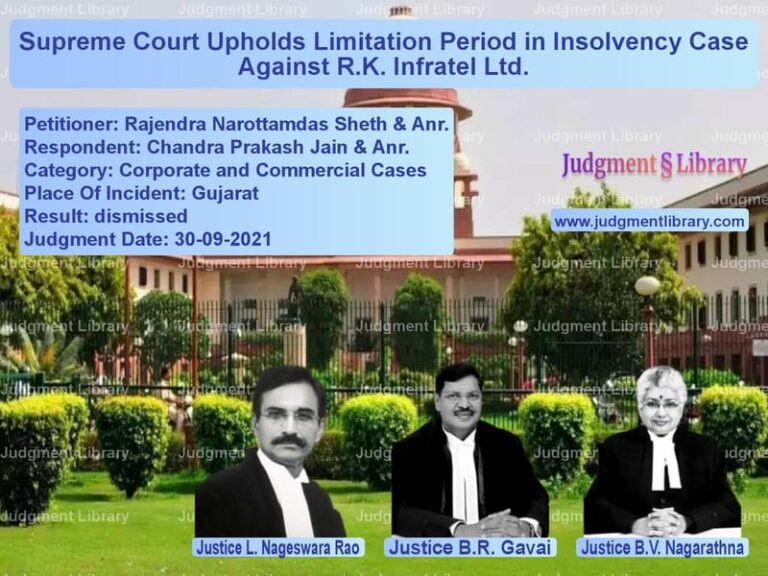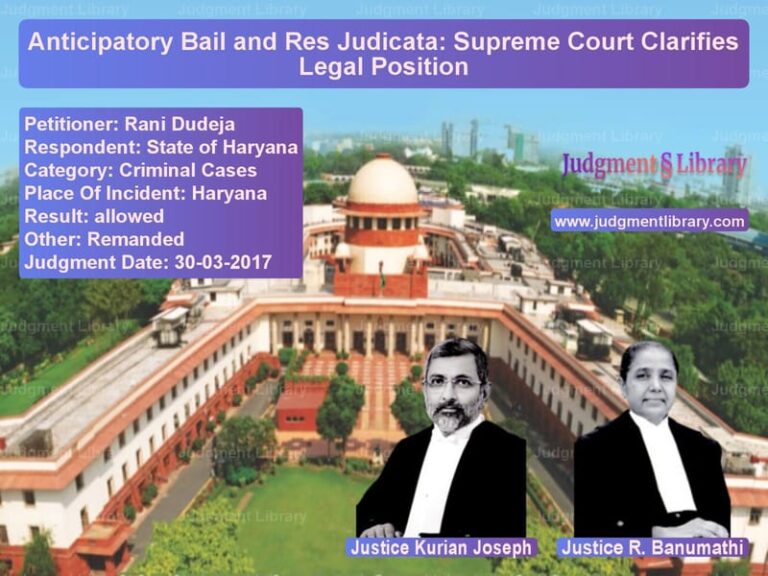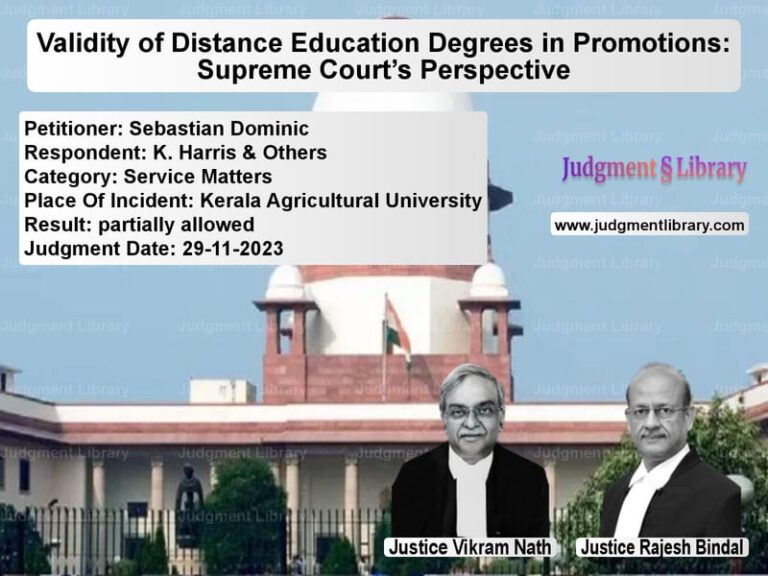Celebratory Firing Case: Supreme Court Modifies Murder Conviction to Culpable Homicide
The case of Bhagwan Singh vs. State of Uttarakhand revolves around an incident of celebratory firing during a wedding that led to the tragic death of two individuals and injuries to three others. The Supreme Court was tasked with determining whether the act constituted murder under Section 302 of the IPC or if it could be classified as culpable homicide not amounting to murder under Section 304 Part 2.
Background of the Case
On April 21, 2007, during the wedding ceremony of Bhagwan Singh’s son at village Dafaut, Uttarakhand, the appellant fired gunshots in celebration. The bullets struck five people in the courtyard, injuring them severely. Two victims, Smt. Anita and Khushal Singh, succumbed to their injuries.
A First Information Report (FIR) was lodged at 8:40 PM by Dharam Singh (P.W.3), who was an eyewitness. Initially, a charge sheet was filed under Section 304 IPC, but later, Bhagwan Singh was charged under Sections 302 and 307 IPC along with Section 25 of the Arms Act.
Trial Court’s Verdict
The Sessions Court found Bhagwan Singh guilty under Sections 302 (murder) and 307 (attempt to murder) of the IPC, based on eyewitness testimonies and the injuries sustained by multiple victims. The court sentenced him to:
- Life imprisonment under Section 302 IPC.
- Five years rigorous imprisonment under Section 307 IPC.
- A fine of Rs. 20,000, with an additional six months of imprisonment in default of payment.
However, he was acquitted of charges under the Arms Act due to the absence of the requisite sanction.
High Court’s Ruling
The appellant challenged the conviction before the Uttarakhand High Court, contending that the firing was accidental. He claimed that a ball, which children were playing with, struck the gun and caused it to fire. He argued that there was no intent to kill.
The High Court rejected his argument, stating:
“There is no merit in the submission. PW2 Chanchal Singh has categorically deposed that the appellant aimed at his wife Smt. Anita and fired. The bullet hit her chest. She was taken to the hospital and declared dead.”
The High Court held that the appellant had the knowledge that his act of gunshot firing was imminently dangerous and was likely to cause death. The conviction and sentence were upheld.
Supreme Court’s Observations
The Supreme Court limited its review to the nature of the offense—whether it should be classified under Section 302 or Section 304 Part 2 IPC. The Court examined the evidence and noted:
- The firing occurred in a crowded wedding gathering.
- The appellant aimed the gun towards the roof and fired.
- The defense argument that the gun was fired due to an accidental strike by a ball was not supported by eyewitness accounts.
- The appellant had knowledge that discharging a firearm in such an environment could cause fatal injuries.
The Court emphasized that celebratory firing is a dangerous act and must be condemned. However, it found that there was no premeditated intent to kill specific individuals.
Final Judgment
The Supreme Court ruled:
“We hold that the appellant had the requisite knowledge essential for constituting the offense of ‘culpable homicide’ under Section 299 IPC, though punishable under Section 304 Part 2 IPC.”
The conviction under Section 302 IPC was modified to Section 304 Part 2, reducing the sentence to 10 years of rigorous imprisonment. Similarly, the charge under Section 307 IPC was altered to Section 308 IPC (attempt to commit culpable homicide), with no change in the fine imposed by the trial court.
Impact of the Judgment
This ruling has significant implications:
- Recognition of Celebratory Firing as a Serious Offense: The Court condemned the misuse of firearms at public gatherings, reinforcing legal accountability.
- Clarification on Culpable Homicide vs. Murder: The case clarifies that if an act is done without intent to kill but with knowledge that it could cause death, it falls under Section 304 Part 2 IPC.
- Sentencing Proportionality: The judgment ensures that sentencing aligns with the gravity of the offense, distinguishing between intentional murder and reckless acts.
The case serves as a strong reminder that celebratory firing, even without intent to harm, can have severe legal consequences, including significant jail time.
Petitioner Name: Bhagwan Singh.Respondent Name: State of Uttarakhand.Judgment By: Justice S.A. Bobde, Justice B.R. Gavai, Justice Surya Kant.Place Of Incident: Dafaut, Uttarakhand.Judgment Date: 18-03-2020.
Don’t miss out on the full details! Download the complete judgment in PDF format below and gain valuable insights instantly!
Download Judgment: Bhagwan Singh vs State of Uttarakhand Supreme Court of India Judgment Dated 18-03-2020.pdf
Direct Downlaod Judgment: Direct downlaod this Judgment
See all petitions in Murder Cases
See all petitions in Attempt to Murder Cases
See all petitions in Bail and Anticipatory Bail
See all petitions in Judgment by S. A. Bobde
See all petitions in Judgment by B R Gavai
See all petitions in Judgment by Surya Kant
See all petitions in partially allowed
See all petitions in Modified
See all petitions in supreme court of India judgments March 2020
See all petitions in 2020 judgments
See all posts in Criminal Cases Category
See all allowed petitions in Criminal Cases Category
See all Dismissed petitions in Criminal Cases Category
See all partially allowed petitions in Criminal Cases Category







